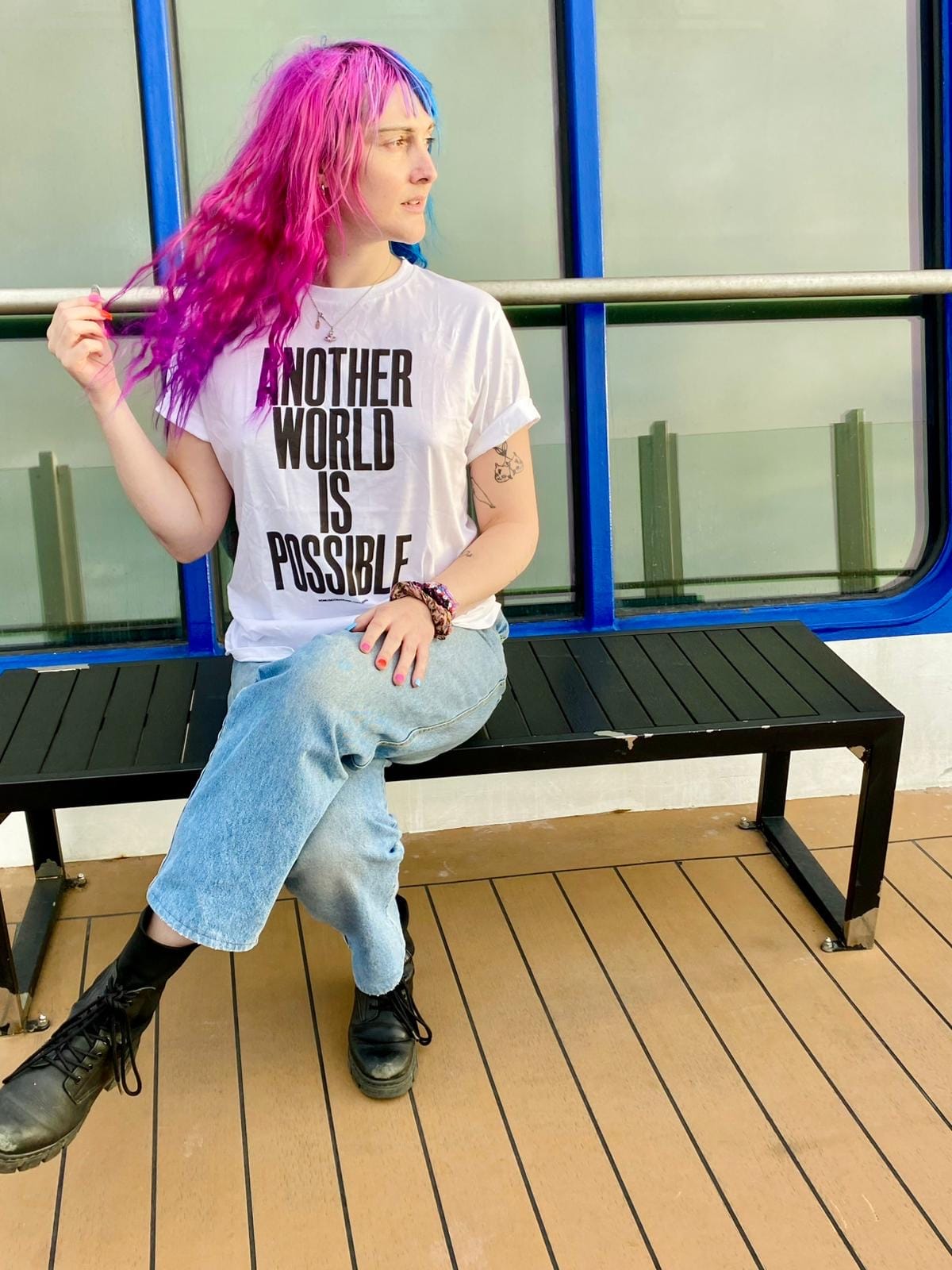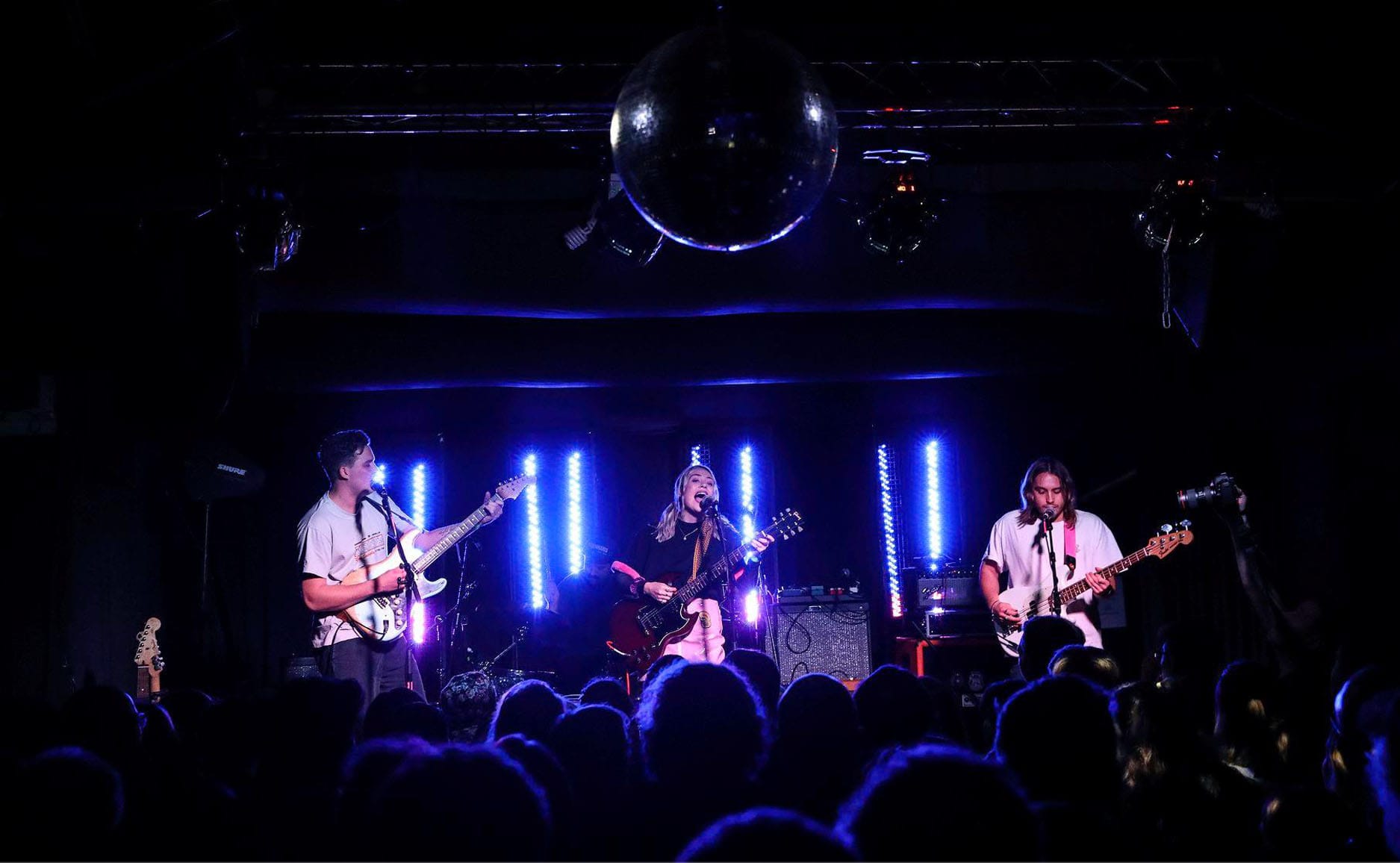The day of a gig inevitably involves some mental arithmetic. Doors at 7, curfew at 11, they’ll probably do an hour and a half, so if they start at 9:30, and there’s a half-hour changeover, the main support will be done at 9… To make it worse, there’s no exact science to this backwards calculation. An 11pm curfew doesn’t mean an 11pm finish; sometimes it’s 10:45, 10:30, even. Other variables are at play; the length of the headliner, the number of supports, the gap between doors opening and the first band starting.
This is the reality in a world where for most small-to-medium sized gigs, the stage times aren’t published beforehand. It can sometimes be different for arena and stadium shows, especially since they’re perhaps less reliant on people turning up early and spending money at the bar, but it can still be hit or miss.
For the good gig-going citizens out there who turn up early for the supports, especially if they’re as just as much of a draw as the headliner, getting there and getting inside can make for a blood pressure-raising experience that blunts the excitement of the night ahead. Standing in the queue and willing it to move faster, not knowing how much of the artist you may have missed, if any at all, is nobody’s idea of fun. If you’re organised (or leave work early) and arrive for doors, there’s no knowing how long you could be mulling about before hearing any music. If unlucky, you could be idly sipping your pre-gig pint for between half an hour and an hour.
It's not just a mere annoyance. To fans, this matters. According to the Music Fans’ Voice Survey conducted earlier this year, 44 per cent of respondents said that having advance information about the stage times and/or the show end time would enable them to attend more live music events. Knowing the exact time the music stops could make the difference between a fan being able to make their last train or not. Doing this seems like an easy way to shift more tickets, but across the board, there’s often very little information beyond what time doors are. But why?
The main argument against posting stage times is that it can disadvantage support acts. “You want to encourage people to listen to the supports. People who turn up one minute before the headliner comes on, the supports aren’t being exposed to a new audience,” explains Simon Nundy, who runs London’s New Cross Inn. “That’s much better for the industry, better for the supports and a couple more quid behind the bar as well. We’re trying to encourage people to make an evening out of it, for the benefits of the artist and ourselves.”
Reece Ritchie, who works as a promoter for Rebellion in Manchester, agrees. “The amount of people we see skipping support bands when we post set times is drastically bigger,” he says. “Some even come into the venue and ask to leave till the headliners are on stage. Not only are the extra bar sales unfortunately crucial for keeping us going as a venue, it’s the best way we can support artists and better guarantees them an audience to play too.” The only exception both make is if they’re specifically asked about stage times, particularly by access customers.
These perspectives make a lot of sense. The prerogative is there to create the most supportive environment possible for the artists lower down bills (even if their presence isn't advertised well on venue websites) – and for venues to financially prop themselves up in a difficult economic climate. On the other hand, does it mean the needs of bands and the needs of fans conflict with each other? Does it have to be like this? Evidently, since several artists in recent times have taken it upon themselves to share stage times with their fans, it’s not a case of turkeys voting for Christmas. After all, they’ve been in the fans’ position.
Los Campesinos! have provided stage times to fans for over five years and, on last year’s Mortal Joy Tour, received widespread praise for sharing them in extensive detail on the same day the tickets went on sale. “I’ve frequently been frustrated, or chosen not to attend gigs, due to not knowing when the show was going to start or end,” explains vocalist Gareth Thomas. “My nearest live music hub is Bristol which is more than an hour away from my home on public transport. It’s anxiety inducing to have to plan getting to and from a show, without knowing when I should arrive, and if I’m going to be able to stay until the end of the show before my last route home.”
General sale for the MORTAL JOY tour begins tomorrow at 10:00am.
— Los Campesinos! (@LosCampesinos) May 23, 2024
Here's all the info you need to confidently buy tickets, and start looking forward to the show!
🎟️ Tickets from https://t.co/R4tIikOHdp
🔎 Further info: https://t.co/JjKq99BYaS pic.twitter.com/boPTDEvUjx
He believes this had a noticeable effect on their first day ticket sales. “Bands, promoters and venues are often commenting on how it can be difficult to sell tickets these days, so why on earth aren’t they making these small efforts to make it easier for fans to buy tickets for gigs in confidence?”
Benefits introduced a similar scheme on their tour last year, publishing stage times and implementing a 10pm curfew. “At the cinema or the theatre, you have a time to be there and you have a time to plan that thing. I don't see why grassroots gigs should be exempt of being able to plan,” says vocalist Kingsley Hall. “I'm a music fan and a gig-goer as much as I am a performer. I can't stand standing there doing nothing, uncomfortably, being forced to drink. That’s not entertaining, it just makes me feel irritated.”
You might remember us asking what could be made to improve gigs in this age of spiralling costs + venues closing. We got loads of suggestions and took them onboard. So for our tour in 2025, all tickets are £12, all shows are two band bills, and all music will be over by 10PM... pic.twitter.com/j7zKWbrkKK
— Benefits (@Benefitstheband) November 13, 2024
The Anchoress wanted an earlier curfew for her shows to better suit her earlier body clock after becoming a parent, but she also recognised that some of her fans likely have the same childcare or caring responsibilities that she does. “Even those without caring responsibilities, have much more reliance upon public transport networks. Everyone’s in a cost of living crisis, and [I wanted to be] more mindful about people not being able to afford to get a taxi home, or missing the last train and having to get a hotel.” It’s also given her more time to meet fans and sell merch at the end of the show. “It has been a really enjoyable experience.”
The three artists had varying degrees of difficulty trying to get promoters on board with their ideas. According to Gareth, it was “incredibly easy” for Los Campesinos!. “This is where I get frustrated. Artists may give other reasons as to why they don’t publish this information in advance, but the truth is that it's simply because they or their teams don’t care enough to or don’t think it’s important,” he says. “There is no good reason for a promoter not to want to help an artist provide this information long in advance.”
The Anchoress found it “fairly easy” but did encounter occasional pushback from venues who insisted on having the bar open till a certain time or said they didn’t wish to affect their staff’s usual hours. To some degree, her team could circumnavigate this as they have their own sound engineer rather than using the in-house one at the venue. In Kingsley’s experience, the stage times posed less of an issue for promoters than the early curfew. “They felt that they were going to miss out on an hour's worth of booze sales. But it didn't materialise like that.” As with The Anchoress, they didn’t shut up shop at 10pm; fans could hang around, buy merch and get another drink if they so wished.
They also didn’t believe the argument disadvantaging support acts was true in their cases. On Benefits’ tour, support act Hang Linton played to mostly full rooms. The Anchoress generally got good turnouts but there was already a degree of fan loyalty as another member of her band has supported her on the tours where she shared the times. “If there are those fans that don't want to see the opening act, then they're going to guess the times anyway,” she says.
Gareth is also skeptical of this argument. “Every time we play a show, the venue is at least 75% full by the time the opening band is playing, and that’s because the band is good, and we told people what time they’re gonna start playing. If a band is picking a good opening act - as opposed to an act that shares the same booking agent, label or management company - and communicates this to their fanbase, those same people will be excited to get down early to watch the opening band that they are already a fan of, or who they are excited to hear perform for the first time.”
Ultimately, this friction is not about to go away. Gareth is hoping that other artists will hear the requests of their fanbase and act accordingly to move the dial on how publishing stage times is viewed. “I realise that it’s a level of admin that a lot of artists might not want to take on for themselves, but this is why most artists pay managers or booking agents or tour managers. Artists can communicate to these people that work with them that they wish to provide more information about stage times to fans, and they can coordinate this information,” he says. “Artists may not care to go to the level of detail that we try to provide, but at the very least they should be posting stage times on their socials on the morning of their show. I would love for any band to give me a single good reason as to why they can’t do this.”
The Anchoress plays London's Union Chapel this Friday (14th November) - buy tickets here. Benefits are on tour from today (12th November) until 22nd November - buy tickets here.
Sniff out the AI in your playlist with Coda Music's new tool
Ever had a streamer offer up AI-generated music against your will? The fan-powered streaming platform Coda Music are rolling out an innovative tool which will review and flag music created by AI artists. It's a democratic system too, as listeners can also flag music they think may be AI-generated for review by the team. In addition, they can opt out of seeing any AI music by toggling a switch.
It couldn't have arrived at a more critical moment. In a time where at least six AI-generated or assisted artists have broken into the Billboard charts, there is an urgent need to develop the infrastructure to resist it. Coincidentally, the other day I saw a music video on YouTube that included a disclaimer in the description that no AI was used in its production. It feels like the start of a new norm.
Community Prompt
Grab a Music Declares Emergency charity shirt

As Cop30 rolls around once again and dominates the headlines, the sting of panic around the climate emergency has returned too. The news sometimes feels extra grim this time of year as a result, but Music Declares Emergency is attempting to cut through the doomerism with a t-shirt campaign bearing a fundamental message for keeping sane in the permacrisis.
They've brought IDLES, Yard Act, Enter Shikari, Maisie Peters, jasmine 4.t., Declan McKenna and more on board for the new Hope Over Fear campaign, who will “[share] messages of hope with their fans” throughout the month. The money raised from the three t-shirt designs, created by Anthony Burril, will directly fund the creation and maintenance of regional climate hubs across the UK and Ireland, in association with the Music Venue Trust. These will provide resources, training, and small grants to help local communities organise gigs, workshops, and regeneration projects.
Hopeful story of the week
Two more grassroots venues brought under public ownership

There's more good grassroots venue this week courtesy of the Music Venue Trust's pioneering Own Our Venues campaign. They've added two more venues to their community-owned portfolio, the Joiners Arms in Southampton and the Croft in Bristol, bringing the total number of venues now under community ownership thanks to Music Venue Properties to seven.
This measure is considered one of the most powerful ways to safeguard venues for the long-term. Under the control of landlords, venue operators are more likely to be evicted, like with the case of the Leadmill in Sheffield or the original site of Boom in Leeds. Consequently, the primary threats that a venue would usually come up against are eradicated. On top of this, MVP are setting rent rates, ensuring annual contributions toward essential maintenance, and offering support with financial sustainability and operational practices.
You - yes you - can also help invest in the programme, with the deadline now extended to this Friday (14th November). MVP is looking to invest in three more venues, hoping to raise up to £1.5 million.


